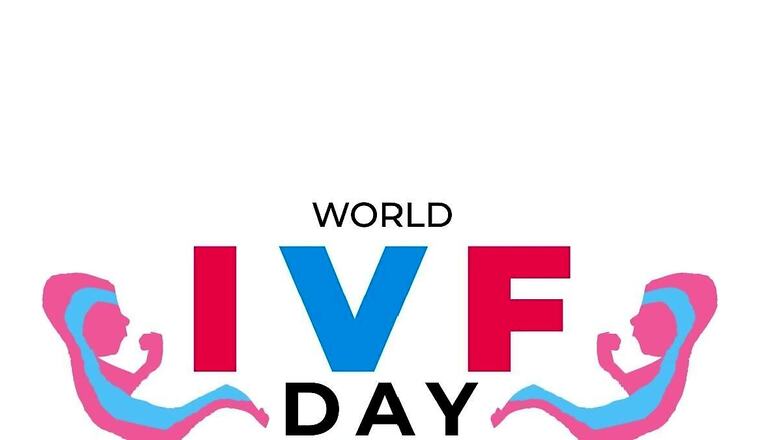
views
In vitro fertilization (IVF) has assisted over five million children to be born but the method is often plagued with common myths. This has resulted in some severe social stigma getting attached to this concept and hence removing these myths will be an important step.
The World Embryologists Day (25th July) is popularly celebrated each year to mark the conception of the world’s very first IVF baby, Louise Brown. The big day is in recognition of all the health care professionals in the vast field of reproductive medicine. So, it’s an appropriate time to have a good look at how the process works.
Dr Sreeja Rani, Sr. Consultant, Obstetrics and Gynecology, Kinder Women’s Hospital and Fertility Centre, Bangalore, explains, “During the IVF process, an infertility specialist retrieves mature eggs from a person’s ovaries, and then an embryologist fertilizes those eggs with carefully prepared sperm in a lab. After fertilization, the fertilized egg, known as the embryo, is transferred into the uterus in order to achieve pregnancy.”
Dr Rani debunks myths surrounding IVF:
Myth-IVF is a treatment for the rich and famous
Truth- IVF, a multistep procedure is expensive but yet less expensive as compared to various other surgical treatments. Cost varies for each couple depending on the rounds of IVF cycles. Many clinics offer financing options, and some insurance plans provide coverage for fertility treatments.
Myth-Infertility is woman’s fault
Truth- Infertility is not anyone’s fault. It could be because of health issues in male or the female partner or sometimes both. In many cases it is unexplainable also.
Myth-Adopting a baby will cure infertility
Truth- Adoption is a beautiful way to build a family, but it doesn’t cure infertility. Some couples who have adopted might have had a “surprise” and a much-welcomed pregnancy, but this is purely coincidental and only occurs in about 5% of cases.
Myth-IVF Guarantees Pregnancy
Truth- In vitro fertilization (IVF) is an extremely effective fertility treatment, but it does not guarantee pregnancy. Success rates of IVF vary depending on several factors such as age, the reason for not conceiving, and the quality of embryos. While IVF can significantly increase the chances of conception, it can require multiple attempts for some couples to achieve a successful pregnancy.
Myth: Babies born through IVF have health and developmental issues
Truth- There is no evidence that babies born by IVF have increased rates of developmental problems/delay or physical issues that contribute to health concerns. Health risks in IVF babies are only similar to those who are born through natural conception.
Myth: IVF is for women only
Truth- IVF is a technique in which the woman’s egg and the man’s sperm are collected and made to fertilize in a lab. These days IVF is used more in combination with several male infertility treatment modalities such as ICSI, TESA, and PESA. A combination of ICSI-IVF may be used in cases of severe male infertility, for example. It involves the selection of a single healthy sperm and then directly injecting it into the female egg to fertilize it in vitro.
Myth: IVF causes early menopause
Truth- Hormonal changes due to fertility medication cause some IVF patients to experience symptoms that are generally associated with menopause. It does not mean that they are heading towards menopause.
Myth: Anybody can donate sperm
Truth- A lot of factors go into determining whether someone could be a good candidate for donation. Some of those factors include if the potential donor has any sexually transmitted diseases (STDs), what their family medical history looks like, and what their current state of mind is. Donation centers also look for the presence of recessive traits for genetic mutations.
Myth-Age isn’t a factor in infertility
Truth- Age is a factor for both men and women. Male or female, your fertility decreases as you get older. In females, after 35, the fertility declines faster. In males, after 40, the quality of the sperm reduces and fertility declines.
Myth-IVF always results in twins or multiples
Truth- The chance of having multiples is higher with IVF due to the transfer of more than one embryo. However, single embryo transfers are becoming more common to reduce this risk.



















Comments
0 comment